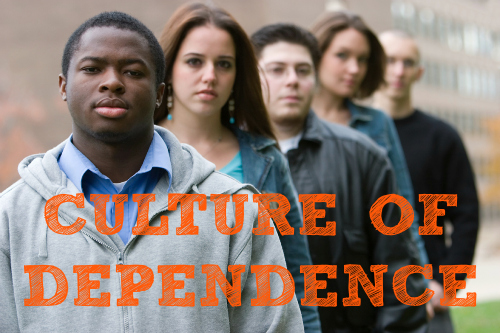We live in a “culture of dependence.” That was a phrase coined by Michael Barone who used it on my radio program. One example he used to illustrate the “culture of dependence” was an exchange between a CNN reporter and a man at a tea party event in Chicago.
The CNN reporter asked him, “Do you realize that you’re eligible for a $400 credit?” When the man refused to lower his “drop socialism” sign, the reporter went on to say, “Did you know that the state of Illinois get $50 billion out of the stimulus.” The reporter is no longer at CNN, but I suspect the man is still attending tea party rallies. I don’t think his vote or his allegiance can be bought for $400.
The exchange, says Michael Barone, illustrates the battle between the culture of dependence and the culture of independence. The CNN reporter reflects the prevailing idea that if you are getting $400 or if your state is getting $50 billion, you should shut your mouth and be glad that for what the government is giving you.
Essentially it is a clash of worldviews. On one side is the view that people cannot take care of themselves. So government needs to step in and provide for the citizens. That is the culture of dependence. On the other side is the culture of independence. The people who hold to this view are a much larger group than just those who attend a tea party rally. They realize that as government grows, it increases a citizen’s dependence upon it and it squeezes out their ability to pursue their dreams and goals.
Is there a place for various institutions (the government, the church, and private organizations) to help the poor? Of course, but the goal should be to provide a hand up rather than a hand out. Programs geared to help citizens become self-sufficient rather than dependent should be a part of this culture of independence.
And that was the problem with the exchange between the CNN reporter and the man at the tea party. His allegiance (and my allegiance) cannot be bought for $400.
 Listen Online
Listen Online Watch Online
Watch Online Find a Station in Your Area
Find a Station in Your Area










 Listen Now
Listen Now Watch Online
Watch Online
